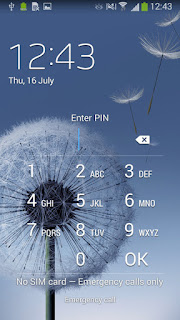At a time when Cyber attacks are increasing with every passing day, the Indian government on Tuesday (February 21) launched a Cyber Swachhta Kendra (Botnet Cleaning and Malware Analysis Centre) which is a desktop and mobile security solution for maintaining a secure Cyber space in the country.
India’s IT and Electronics Minister, Ravi Shankar Prasad through its Computer Emergency Response Team (CERT-in) launched the
M-Kavach tool in New Delhi which offers a comprehensive mobile device security solution for Android devices addressing threats related to mobile phones. The new solution will notify, enable cleaning and secure systems of end-users to prevent further infections.
"Launched 'Cyber Swachhta Kendra' (Botnet Cleaning and Malware Analysis Centre), an imp milestone in various initiatives taken on Cyber Security," tweeted Prasad. Botnets fundamentally is a program which is automated and runs on a
computing device which can be any IoT/smart device. The attacks taking
place using botnets are called Distributed Denial of Service (DDoS).
* Botnet Cleaning and Malware Analysis Centre (Cyber Swachhta Kendra) -
India has been ranked 3rd in bot-net distribution. Its a good move for Indian government to clean the computers. CERTIn
has chosen an Indian product for this.
Research by CSPF(Non profit organization) found that Malwarebytes /
Avast anti-virus free anti-virus are more effective in removing viruses/bots.
The
free product chosen by CERTIn also advertises that botnet cleaning
tool is not replacement to anti-virus. "The vendor is trying to sell his
other anti virus solutions which is totally unacceptable" according to an US based anti virus company.
"Antivirus and botnet cleaners should be constantly maintained, Who is going to do this CERTIn or Indian vendor?" asks the US based anti-virus company.
According to CSPF "some samples of botnet were missed by this tool",
the tool should have a facility to report malware missed by this tool.
"Launched USB Pratirodh, which will control the unauthorized usage of removable USB storage media devices like pen drives, external hard drives. Launched App Samvid, to protect Desktops from suspicious applications from running," the minister added.
USB Pratirodh is a desktop security solution that controls the usage of removable storage media like pen drives, external hard drives and other USB-supported mass storage devices.
AppSamvid is a desktop solution which protects systems by allowing installation of genuine applications through white listing. This helps in preventing threats from malicious applications.
According to Cyber Security & Privacy Foundation "Some of these tools developed by CDAC including white listing tool
is far more complex for a normal user to understand. White listing tool does not
detect .msi files and other extension".
Executable blocking /
allowing has to be manually done. Most end users don't understand white
listing, they don't know which to allow/block when there is an issue.
users should not end up locking their own computers. Auto white listing
that is available in some famous anti viruses should be included.
The reason cyber security is an issue among common man is
because common man does not understand anything technical. If using the
tool is more complex then the actual problem how are we going to solve
the problem says a college student.
He also suggests "video should be released by CDAC showing what the tool is about and how
to install and run" in multiple languages.
During the launch, Prasad said that the 13 banks and Internet service providers are using this government facility presently and the government will co-ordinate with other ISPs and product/antivirus companies to spread its usage for a safer online space.
Prasad said that this Kendra will also enhance awareness among citizens regarding botnet and malware infection along with measures to be taken to secure their devices.
The minister also announced that the National Cyber Coordination Centre will be operational by June 2017 and CERT-Ins will be set up at state level as well.
"The government will set up 10 more STQC (Standardization Testing and Quality Certification) testing Facilities. Testing fee for any start-up that comes up with a digital technology in the quest of cyber security will be reduced by 50 per cent. We will also empower designated forensic labs to work as the certified authority to establish cyber crime," Prasad noted.
The move comes at a time when over 50,300 cyber-security incidents like phishing, website intrusions and defacements, virus and DDoS attacks have been observed in the country during 2016.
As per the information reported to and tracked by CERT-In, a total number of 44,679, 49,455 and 50,362 cyber-security incidents were observed during the years 2014, 2015 and 2016, respectively.
The Cyber Swachhta Kendra is part of the government of India’s Digital India initiative under the Ministry of Electronics and Information Technology (MeitY). The Cyber Swachhta Kendra complies with the objectives of the National Cyber Security Policy which aims at creating a secure cyber Eco-system in the country.
The botnet and malware cleaning analysis centre was announced in 2015 with an outlay of Rs. 100 crores.
Industry experts wonder about the 100 crore outlay if it is going to used for building antivirus/botnet cleaning software, honeypots to track bots and take down botnets.
The threat of Cyber security has become more serious and visible in the past few years in the country. There is a need to collaborate and come forth with more solutions like the Cyber Swachhta Kendra. It was a much-needed move by the government. It should not be just another public relation exercise but it should be effective.
You can download the tools from here:
http://www.cyberswachhtakendra.gov.in/security-tools.html

























